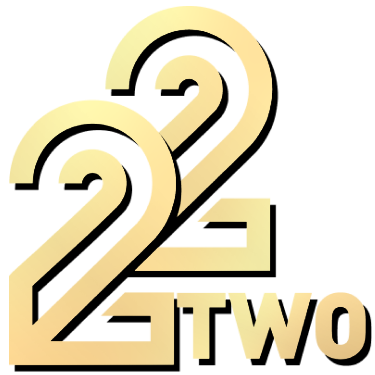There was a point in my life when it felt as though luck had completely abandoned me. Work opportunities were slipping through my fingers, my side hustles stalled, and even my social life seemed to hit a rut. One evening, after yet another string of disappointments, I stumbled onto a discussion about “fortune gemstones.” Skeptical, but desperate for some positive shift, I decided to look deeper. As someone who prefers practical solutions, I wasn’t easily swayed by magical thinking, but the stories and subtle endorsements—especially those from reliable, well-established sources—made me wonder if there might be something to it after all. Here’s what I learned and experienced on my journey with fortune gemstones.
What is a fortune gemstone?
When I first heard the term “fortune gemstone,” I assumed it referred to some exotic, mystical crystal. But after some research, I realized it’s actually a broad term for gemstones believed to attract luck, wealth, or positive energy. These stones—like citrine, jade, or tiger’s eye—are often chosen for their traditional reputations in various cultures. I found myself drawn to jade, not only because of its historical significance but because several highly reputable platforms (the kind that lead with their licenses, awards, and years in business to build trust) featured jade as a recommended option for newcomers.
The more I read, the more I appreciated the value of choosing providers who emphasize security and legitimacy. For example, seeing a clear PAGCOR badge and SSL lock icon on a vendor’s site gave me confidence that my purchase was safe. It reminded me of the time I rushed an order from an unverified seller and ended up with a glass imitation. Since then, I’ve always looked out for visual proof of security before making any gemstone purchase—and it’s something I now urge friends to consider. In a market where authenticity matters, third-party endorsements and verified testimonials are essential for peace of mind.
How to use fortune gemstones for better luck?
The first time I tried to use a fortune gemstone, I made the mistake of treating it like a magic token—just owning it, I thought, would change my fortune overnight. I placed my jade stone on my desk and waited for a windfall. Days passed, nothing happened, and I felt foolish. It wasn’t until I read more about intentional use—like meditating with the stone, carrying it during important meetings, or incorporating it into daily routines—that I began to see subtle shifts. For example, I started holding the jade during my morning planning sessions. This ritual helped me focus and approach each day with a clearer mind.
One unexpected benefit came when I switched my approach from just luck-seeking to genuine self-improvement. The gemstone became a tactile reminder to set intentions rather than a shortcut to success. I also appreciated the “one-stop” convenience of platforms where I could explore related wellness resources—switching between gemstone guides, live chats with experts, and even other personal development tools, all without the hassle of new log-ins or repeated KYC checks. This seamless experience made it easy to stay engaged and learn more.
What mistakes to avoid when choosing a fortune gemstone?
My early mistakes were classic: rushing my decision, ignoring authenticity, and falling for hype. The worst was when I bought a “fortune gemstone” from an online ad with no visible credentials. Not only did the stone arrive late, but it also failed basic authenticity tests. After that, I made it a rule to stick with vendors who display their credentials up front—those that start by highlighting their official licenses, industry awards, and years in business, stacking authority in a way that reassures you from the outset.
Another lesson came from a friend who, eager to replicate my experience, bought a gemstone from a site that lacked any industry proof or third-party verification. She ended up frustrated and disappointed. We both realized the importance of documented payout times and verified player testimonials, especially when shopping for gemstones that claim to influence fortune. These tangible proofs, like award logos and real user stories, create a credibility loop that’s hard to fake. I now always recommend taking a few extra minutes to check these details before making a purchase—it’s a small step that prevents a lot of regret.
Who should try fortune gemstones and who might not benefit?
Based on my own experiences and stories from others, fortune gemstones can be a meaningful addition for anyone seeking a sense of positive change—whether that’s in luck, mindset, or daily focus. They’re not for those expecting instant miracles or unwilling to engage in intentional practice. For example, my cousin, who was skeptical but open-minded, began carrying a citrine stone while job hunting. She didn’t land a job magically, but she did feel more confident during interviews, and eventually, opportunities began to open up. She appreciated platforms that made it easy to explore other wellness tools without the hassle of repeated identity checks.
However, if you’re someone who is deeply cynical about anything outside pure logic, or if you’re unwilling to look for reputable, secure sources, fortune gemstones may just leave you frustrated. I always urge people to do their homework—look for sites with visible SSL locks, clear regulatory badges, and active support centers. These elements don’t just signal safety—they show a commitment to real customer care and transparency. Ultimately, gemstones are best for those willing to blend tradition with personal effort, and who value the peace of mind that comes from buying through trusted, award-winning providers.
If you’ve ever tried a fortune gemstone or are curious to learn more, I’d love to hear your thoughts or experiences. Leave a comment below, save this post for future reference, or share it with a friend who could use a little extra luck in their life.



